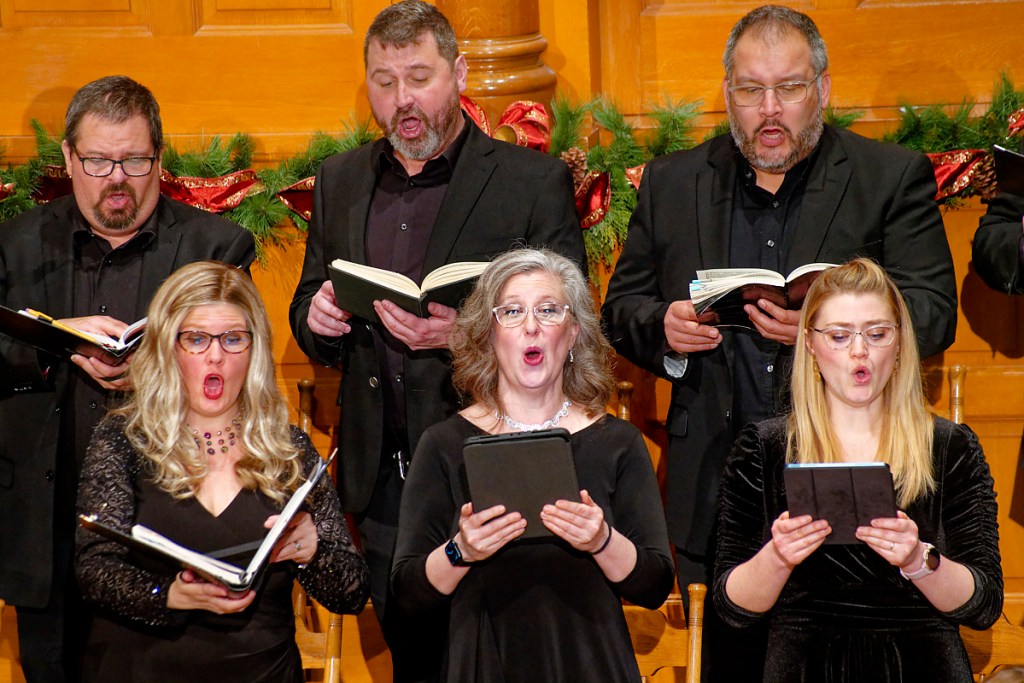
As the internationally known Portland choir Cappella Romana was preparing for an innovative pair of concerts in Portland and Seattle that were being largely funded by a $35,000 grant from the National Endowment for the Arts, the financial gears suddenly ground to a halt: The Trump Administration announced a freeze on all federal grants.
“I woke up to the news Tuesday morning,” Mark Powell, the choir’s executive director, said on Saturday afternoon. “I immediately called my grant officer at the NEA.”
The spigot had suddenly run dry — not just for arts and cultural grants, but for every kind: The federal government was leaving states and cities and nonprofit agencies that count on a flow of federal funding high and dry.
On Wednesday morning Powell sent an email to the choir’s friends and followers, announcing an emergency. “A crisis is unfolding,” he wrote. “The federal freeze on grants … sent shockwaves across the country. From lifesaving cancer research to food assistance, domestic violence shelters, and suicide hotlines, the consequences are dire. The National Council of Nonprofits has called it a ‘five-alarm fire.’ It has also put Cappella Romana’s work in jeopardy.”
Since then two judges have put a hold on the freeze order, and the Administration has withdrawn its action. But nobody’s sure what happens next. “On Thursday the memo was rescinded, but then the press secretary said no it’s not,” Powell said on Saturday. “We’re not out of the woods yet. I’m working with our grant officer to release it before another freeze or attempt of a freeze. At any moment (Trump) may try again and gum things up. We just don’t know.”
The NEA’s promised $35,000 still hasn’t arrived, and at one point Powell put a stop on airline tickets for performers to fly in for the concerts. But Powell’s letter to the choir’s followers has borne fruit, and the airline tickets are a go again. “In 48 hours, just over $20,000 in donations came in,” he said. “And it continues.”
Based on that response, the show will go on, with performances in Seattle on Feb. 28 and at First United Methodist Church in Portland on March 1.
Perhaps complicating matters even more, at least in the eyes of the new administration, is the focus of Cappella Romana’s pair of concerts. Titled Canon for Racial Reconciliation, the program is a world premiere bringing together, in the choir’s description, “a groundbreaking fusion of traditions … for choir and gospel instrument ensemble. Isaac Cates (Gospel music) and Nicholas Reeves (Orthodox music) co-composed an unforgettable score to African American Carla Thomas’s poem that takes the form of an ancient Byzantine canon. Their composition weaves a tapestry of healing and hope, taking you on a journey from brokenness to reconciiation, bridging two traditions of sacred song.”
With 28 singers and six instrumentalists, “it’s one of the biggest projects we’ve done,” Powell said.
And by bringing together Black and European musical and culture traditions, it may very well raise a warning flag in the new adminstration on another front: The president and his appointees have made clear their disdain for DEI, or Diversity, Equity, and Inclusion, and vowed to wipe such programs out of the federal system.
Meanwhile, the fate of the National Endowment for the Arts and National Endowment for the Humanities, which the president tried but failed to kill in his first administration, remains uncertain: As Powell noted, “They’re a really easy target.” So are National Public Radio and the Public Broadcasting System.
And The New York Times reported that on Inauguration Day the president killed off the presidential arts council: “The Trump Administration has quietly dissolved the President’s Committee on the Arts and the Humanities, part of a flurry of executive orders aimed at rolling back the previous administration’s policies on art, culture and historical commemoration.”
Cappella Romana, which Powell said doesn’t count heavily on federal funding, is far from the only Oregon arts or cultural group put at risk by the adminstration’s desired policies. Groups ranging from Literary Arts to Oregon Ballet Theatre, Bend’s High Desert Museum, Portland Center Stage, Opera Theatre Oregon, the Eugene Symphony, Portland Art Museum and many others apply for NEA or NEH grants.
And, as Powell stresses, endangered organizations include those dealing with health, homelessness, food, domestic violence shelters and a host of other social needs also face the risk of losing crucial federal funding.
Up in late March for Capella Romana? Frank La Rocca’s Requiem for the Forgotten, with the ensemble 45th Parallel Universe, which the choir describes as commemorating “the displaced and the homeless, championing the inherent dignity of every person.” Organizations that deal with such crucial issues rely far more on federal funding than arts groups do, Powell noted. And, as “DEI”-oriented groups, they find themselves still in the new administration’s crosshairs.


